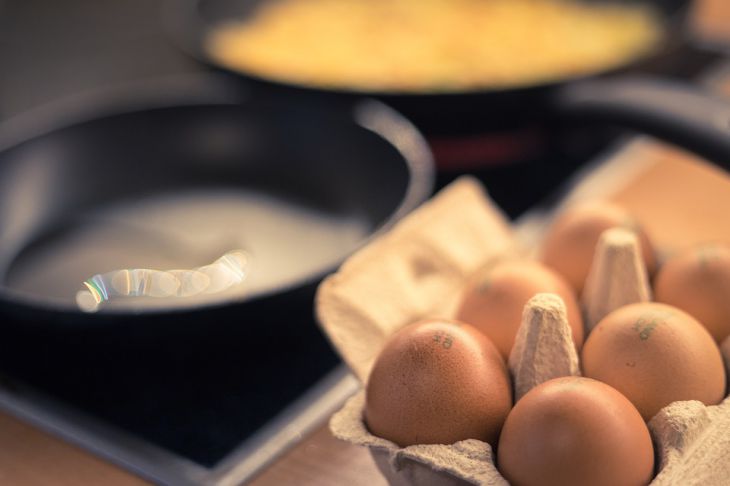How to boil eggs so that they do not burst: 5 ways
Boil eggs so that the shell does not crack, especially during the Easter period. After all, bright, smooth, shiny, decorated eggs are the main attribute of the festive table.
Experts have named several tricks that help maintain the integrity of the shell when boiling eggs.
However, if you are in doubt about which method is best, on the eve of the holiday - for a day or two - try the method that seemed most reliable to you.
The most common way to boil eggs
Remember the basic rule - do not put cold eggs in hot water! Indeed, due to the temperature difference, the shell cracks almost instantly.
It is better to get the eggs out of the refrigerator in advance and let them lie at room temperature for half an hour, and then immerse them in warm or cold water.

Even easier - immediately put the eggs in cold water for cooking and gradually heat it over low heat.
A strong fire is unacceptable, because from the active seething of boiling water, the products will begin to hit the walls and bottom of the pan and may break.
The same thing will happen if you put too many or too few eggs in the pan, they will start to beat against each other and most likely crack.
It is best that there is not a lot of free space between the products and that the eggs are in one row, covering the entire bottom of the dish in which they are cooked.
Salt the water for cooking generously beforehand, this will increase its density and prevent cracking of the shell and leakage of the protein.
Two teaspoons of salt are enough for a liter of water. Don't be afraid to oversalt, the egg in the shell does not absorb salt.
It is customary to boil eggs for Easter hard-boiled, that is, 8-10 minutes after boiling water. This allows you to keep the product fresh for a long time, because, according to the traditions of the Christian holiday, eggs for it are prepared and painted in advance - on Maundy Thursday.
Consider a few more ways to boil eggs - not so popular, but perhaps no less effective. The following items that can be found in every home will come to the rescue.
Toothpick
Before heating the water in which the eggs will be cooked, drop a few wooden sticks or toothpicks into the water. It is believed that this method will help the shell not crack, but on condition that the water is not boiling water, but eggs at room temperature.
Plate
Place the plate upside down in the bottom of the dish you will be cooking in, and then carefully place the eggs on top of it.
Vinegar
Instead of salt, you can add vinegar to the water and then, if the egg cracks during cooking, the acid will help the protein to quickly curdle, and it will not leak out completely.
True, a crack in the shell can still be quite noticeable.
Pin
You can gently pierce the egg from the blunt end with a large needle or pin. Due to this, air will escape from the air chamber inside the shell, due to which the integrity of the shell is often violated.
Only the hole should be shallow so that the contents of the egg do not leak out through it.
We hope these tricks will help you prepare eggs for Easter safe and sound so that the holiday is only a joy.

